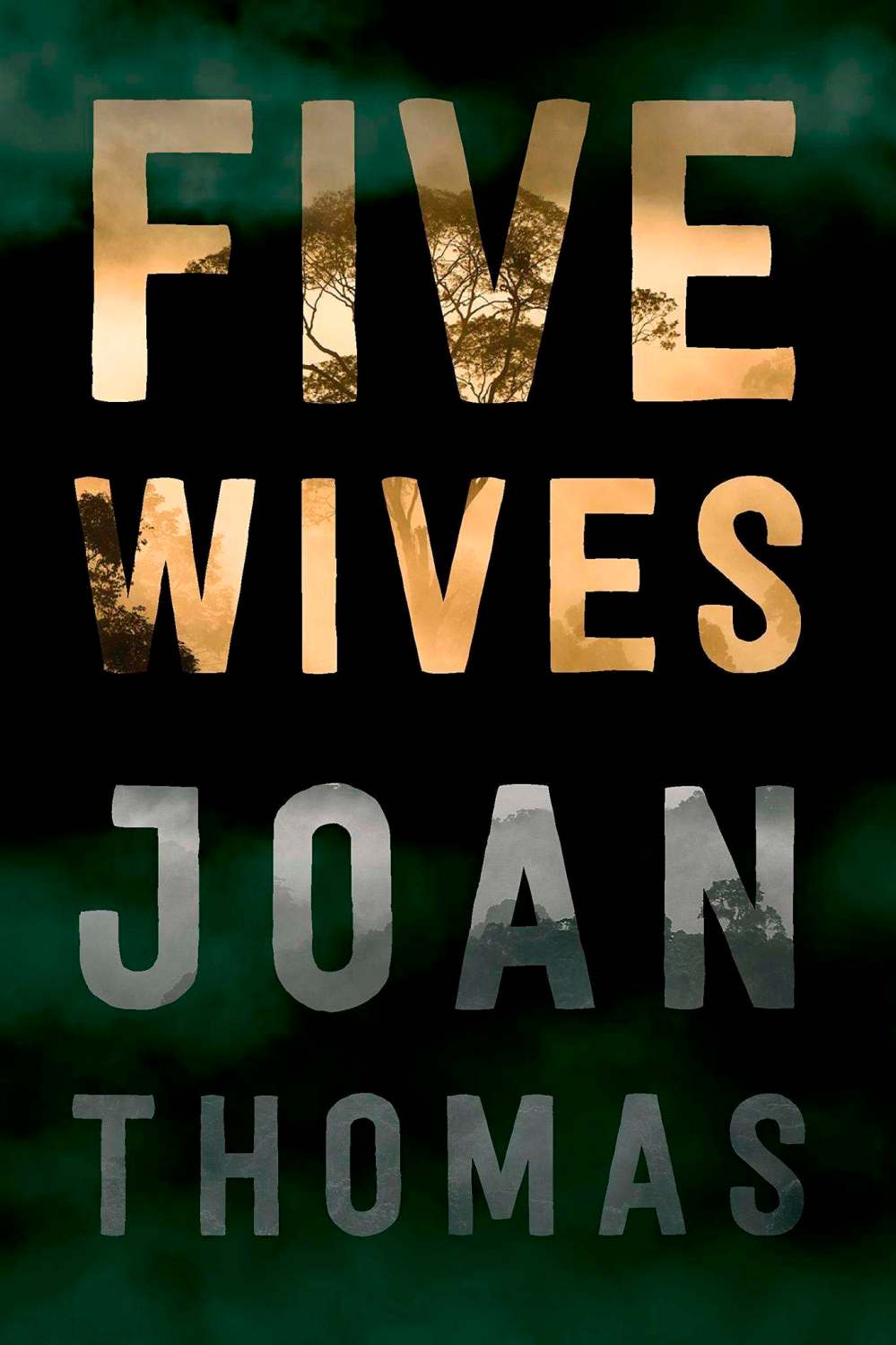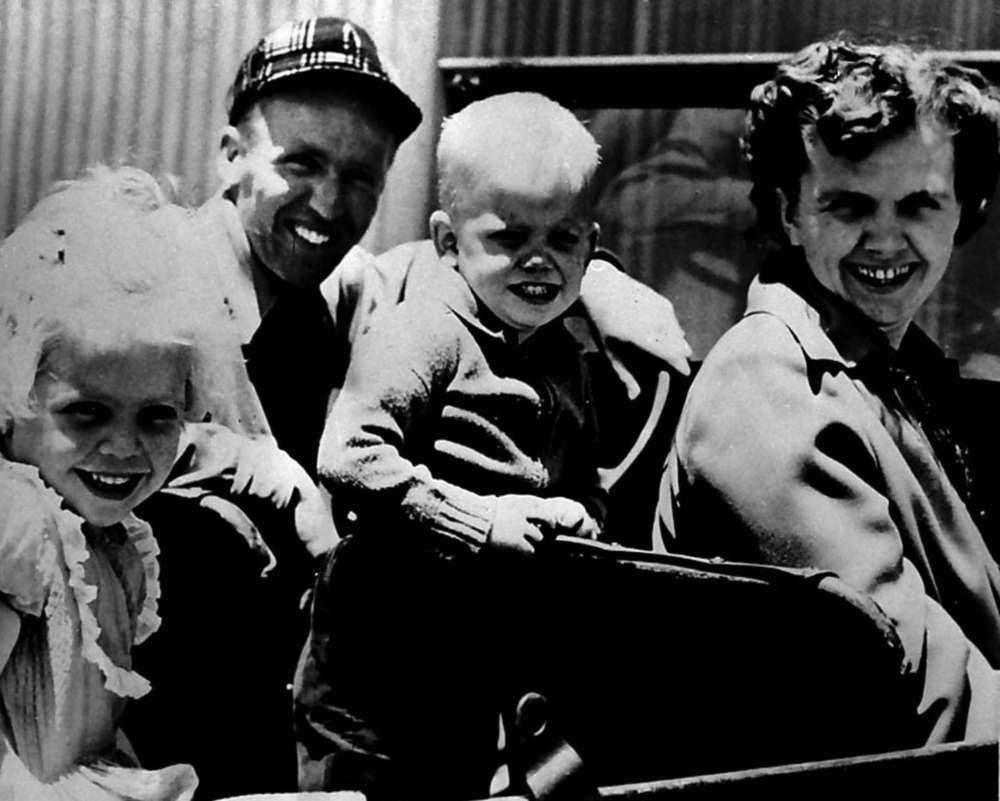Into the wild
Novelist's latest offering a riveting fictional account of missionaries' plight
Advertisement
Read this article for free:
or
Already have an account? Log in here »
To continue reading, please subscribe:
Monthly Digital Subscription
$0 for the first 4 weeks*
- Enjoy unlimited reading on winnipegfreepress.com
- Read the E-Edition, our digital replica newspaper
- Access News Break, our award-winning app
- Play interactive puzzles
*No charge for 4 weeks then price increases to the regular rate of $19.00 plus GST every four weeks. Offer available to new and qualified returning subscribers only. Cancel any time.
Monthly Digital Subscription
$4.75/week*
- Enjoy unlimited reading on winnipegfreepress.com
- Read the E-Edition, our digital replica newspaper
- Access News Break, our award-winning app
- Play interactive puzzles
*Billed as $19 plus GST every four weeks. Cancel any time.
To continue reading, please subscribe:
Add Free Press access to your Brandon Sun subscription for only an additional
$1 for the first 4 weeks*
*Your next subscription payment will increase by $1.00 and you will be charged $16.99 plus GST for four weeks. After four weeks, your payment will increase to $23.99 plus GST every four weeks.
Read unlimited articles for free today:
or
Already have an account? Log in here »
Hey there, time traveller!
This article was published 07/09/2019 (2292 days ago), so information in it may no longer be current.
In 1955, five American missionary couples set out to evangelize the Waorani, an Indigenous people group of the Ecuadorian rainforest that had never had contact with the outside world. They dubbed their mission “Operation Auca.”
After a few months of airdropping gifts, the five men — Jim Elliot, Peter Fleming, Nate Saint, Ed McCully and Roger Youderian — opted to set up camp on a beach near a Waorani settlement. Just a few days later, they were all speared to death. Thanks to the swift arrival of a Life magazine photographer, the brutal conclusion to Operation Auca became global news.
In her new novel, Five Wives, Winnipeg writer Joan Thomas tells this story again.

“In the missionaries’ memoirs, ‘God’s leading’ explains almost every impulse,” Thomas writes in a postscript. “I set out to peer behind that, to explore in human terms actions that astonished me.”
Because Thomas was reluctant to discuss people still living, Five Wives treats the original generation — Jim and Elizabeth Elliot et al. — fictionally, meaning the novel remains faithful to facts and timelines, while imagining these individuals’ interiority and motivations. Subsequent generations are entirely fictionalized.
In choosing to tell this story, Thomas signed up for weighty material. Five Wives is not an exposé (though Thomas certainly did her research), but it does take a critical point of view. Not for nothing has this novel been compared to Barbara Kingsolver’s The Poisonwood Bible. From the outset, Thomas risks alienating any among her audience who have Christian roots, because the story of Nate Saint, Jim Elliot and the others is beloved by evangelicals, and Thomas has no interest in further romanticizing it.
It’s a sad, sad story from any point of view, both for the horror of the murders and the effects foreign interests had on Ecuador. It’s a fact, for example, that missionaries helped usher the oil industry into Ecuador and played a direct hand in Waorani disenfranchisement. Missionaries were instrumental in preserving Waorani language but also, early on, in cementing the Waorani’s global reputation as cultureless “savages” (“Auca” is actually a misnomer for “Waorani,” meaning “savages”). Following contact, many of the Waorani were wiped out by viruses against which they had no immunity. Today, they are only beginning to regain a political voice.
It’s not a Waorani voice that Thomas takes up in Five Wives, but those of the women left behind after that terrible day on the beach.

They are Elizabeth Elliot, Olive Fleming, Marjorie Saint, Rachel Saint (Nate’s sister), Marilou McCully and Barb Youderian. Some of them are newly married when they arrive in Ecuador, some have little children and some are opposed to the mission from the start. In the days after their husbands are murdered, all of them stick to the story that the deaths aren’t a tragedy but rather an opportunity for God to expand “His” work in Ecuador.
Thomas imagines, with great effect, how it would feel to be widowed on the mission field, forced to continue making sandwiches for the children while turning a brave, believing face to the world.
“I don’t want you to think I’m questioning God,” a distraught Marjorie tells the Life photographer when her control breaks.
Contemporary chapters are narrated by Saint’s fictional son, David, as well as a granddaughter named Abby. With such a large cast of characters, the narration in Five Wives is occasionally spread too thin, and some intriguing narrators — like Olive Fleming — are left by the wayside. Sections in which 19-year-old Abby wrestles with her family’s legacy are especially poignant; her earnestness calls to mind characters Thomas has written before (Lily in 2008’s Reading by Lightning and Sylvie in 2014’s The Opening Sky). Abby’s questions serve as a corrective to the other characters’ fervour, and Five Wives could have stood more of them.
But such is Thomas’s skill that she also finds nuance in the fervour, as when the widowed Elizabeth Elliot meditates on the significance of being chosen as Jim’s partner in life and in missions: “She felt the deep gladness of this, and also its weight. It was of a scale too big to be reckoned up, his martyrdom and God’s purposes. Consciously or unconsciously, she had followed Jim into mystery.”

Five Wives is an engrossing, thoughtful read, and a fresh testament to Thomas’s narrative powers — and her ability to locate a human pulse under the often-deafening drumbeats of religious and cultural tradition.
Julienne Isaacs is a Winnipeg writer.


